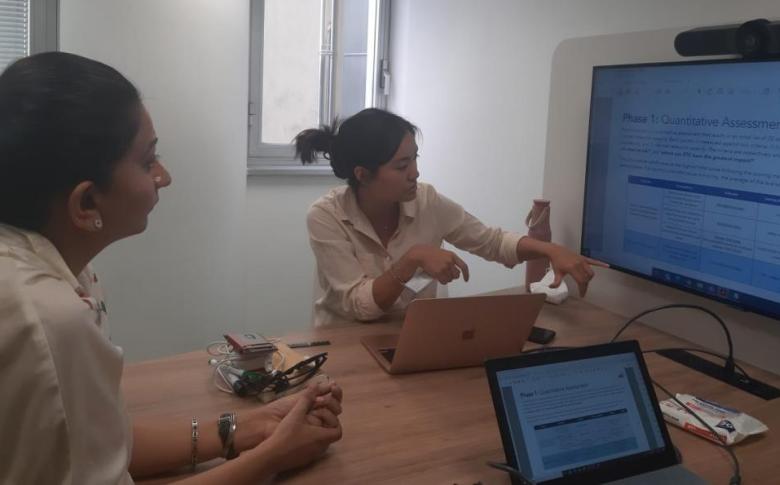Learning and growing with the Global ETC Team

By Jennifer Lim
What led you to apply for the volunteer program?
I applied for the volunteer program with the ETC because it aligned with my professional interests. Pursuing my master's degrees in international relations and international security made me aware of the growingly important issue of food security and the significance of integrating technology into humanitarian missions. As ETC focuses on providing shared communications services in humanitarian emergencies, it aligns perfectly with my background and passions.
Also, having completed a student consultancy project with ETC centred around developing a country prioritization rationale, I was very interested to learn more about their operations in emergency telecommunications and disaster risks. Through the volunteer program, I wanted to know how the humanitarian community assesses and prepares for disasters. Furthermore, it was an opportunity to work for the world's largest humanitarian agency, which I knew would be an invaluable experience.
What types of projects did you work on?
I was able to work on various projects, but the primary responsibility was developing and refining the country prioritization rationale, building from my student consultancy project. It entailed developing a methodology for ETC's prioritization of certain countries over others by considering the risks they faced and their national telecoms capacities. Along with the methodology, I built a quantitative excel-based tool based on publicly available indices and partner surveys, which produced a comprehensive list of countries that needed ETC's intervention the most.
Additionally, I populated and published country profiles, which allowed me to do an in-depth study of countries and their national telecoms capacities. I learned not only the climate risks specific countries face but also their regulations on telecommunications. I also developed an outreach plan and media kit for a recently published ETC model to assess the benefits of investing in emergency telecommunication preparedness and to engage ETC partners and coordinators, among others.
What skills were you able to develop?
Due to the diversity of the projects, I was able to develop various skills, including, but not limited to: research, presentation, communication, and time management skills. To create the country prioritization rationale, I conducted in-depth research to identify the relevant indices and interpret and critically assess methodologies used in similar organizations. Afterward, I presented the methodology to the broader ETC team and integrated feedback to refine the rationale. Lastly, delivering the relevant documents and projects on time while completing academic tasks led me to develop my time management skills.
What was your most memorable experience?
My most memorable experience was visiting the World Food Programme headquarters. I was amazed from the moment I set foot into the building, seeing the Nobel Peace Prize medal, which demonstrated the importance of the work at the organization. Meeting the team was also an invaluable experience, as I could discuss the current projects and brainstorm new ideas and observe the operation's careful execution. On my last workday in Rome, I even had the opportunity to speak with the CIO and hear about his background and work ethic. This experience, visiting the headquarters and working with the team in person, inspired me to pursue further opportunities in the public sector, specifically at the World Food Programme.
Jennifer Lim is a recent graduate of the London School of Economics.